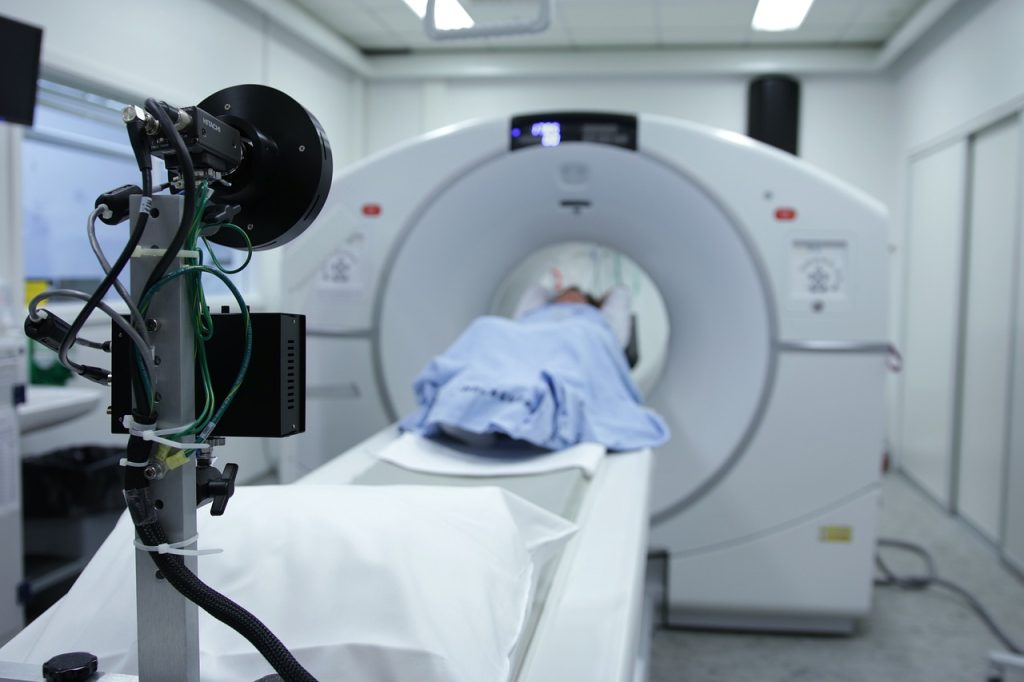Exploring the Role of Electronics in Advancing Personalized Medicine
In the world of modern healthcare, personalized medicine is revolutionizing the way we approach medical treatment. By tailoring healthcare interventions to an individual’s unique characteristics, personalized medicine offers the potential for improved outcomes and enhanced patient care. And at the forefront of this dynamic field are electronics, playing a crucial role in advancing personalized medicine. From cutting-edge wearable devices to sophisticated diagnostic tools, electronics are empowering both patients and healthcare professionals to make informed decisions and optimize treatment plans. Join us as we explore the exciting ways in which electronics are shaping the future of healthcare and transforming personalized medicine.

Table of Contents
ToggleRole of Electronics in Personalized Medicine
Overview
The field of personalized medicine has made significant strides in recent years, and one of the key contributors to these advancements is electronics. Electronics have revolutionized the way we approach diagnostics, therapeutics, and monitoring in personalized medicine. By leveraging technological advancements, electronics have enhanced the precision and effectiveness of healthcare by delivering tailored treatments to individual patients. In this article, we will delve into the benefits and challenges of implementing electronics in personalized medicine, explore their role in diagnostics, therapeutics, and monitoring, discuss the integration of big data and artificial intelligence, and address the ethical and legal considerations surrounding this rapidly evolving field. Additionally, we will consider future perspectives and the potential impact of electronics on personalized medicine.
Benefits of Electronics in Personalized Medicine
Electronics play a crucial role in personalized medicine by delivering a multitude of benefits. By harnessing the power of electronics, healthcare professionals can obtain accurate and timely diagnostic information, enabling the early detection and prevention of diseases. This leads to more effective and targeted treatments, reducing the overall burden on healthcare systems. Moreover, electronics enable the precise delivery of therapeutic agents, such as drugs, through advanced drug delivery systems. Such targeted delivery minimizes side effects and maximizes the therapeutic effect. Electronics also facilitate continuous monitoring of patients’ health, providing real-time data for analysis and interpretation. This allows for personalized treatment plans, optimizing patient outcomes and improving overall quality of life.
Challenges in Implementing Electronics in Personalized Medicine
Despite the numerous benefits, there are certain challenges in implementing electronics in personalized medicine. One major hurdle is the cost associated with the development and adoption of electronic technologies. Research and development in this field require significant investments, and the subsequent manufacturing costs can be a barrier to widespread implementation. Another challenge lies in the interoperability of different electronic devices and systems. Standardization and compatibility issues need to be addressed to ensure seamless integration and communication between various devices and platforms. Furthermore, ethical considerations, such as privacy and data security, must be carefully addressed to protect patients’ sensitive information and maintain public trust. Regulatory frameworks need to be established to ensure the safe and responsible use of electronics in personalized medicine.
Electronics in Diagnostics
Introduction to Diagnostics
Diagnostics play a paramount role in personalized medicine, as they provide essential information about an individual’s health status and aid in the early detection and prevention of diseases. Electronics have revolutionized diagnostics by enabling the development of advanced diagnostic devices that offer high sensitivity and specificity. By utilizing electronics, these devices can detect biomarkers and analyze biological samples with unprecedented accuracy and speed. This allows for the identification of diseases at their earliest stages, when they are most treatable, leading to improved patient outcomes.
Electronics-based Diagnostic Devices
Electronics have facilitated the development of various diagnostic devices that have transformed personalized medicine. For instance, biosensors, which are electronic devices that detect and quantify biological substances, have revolutionized point-of-care testing. These small, portable devices enable rapid testing and diagnosis in resource-limited settings, improving access to healthcare for underserved populations. In addition to biosensors, electronic imaging techniques, such as magnetic resonance imaging (MRI) and computed tomography (CT), have advanced diagnostics by providing detailed and precise images of the body’s internal structures. These imaging techniques aid in the detection and characterization of diseases, leading to more accurate diagnoses and personalized treatment plans.
Advancements in Diagnostics Enabled by Electronics
Electronics have spurred advancements in diagnostics, enabling the development of novel diagnostic techniques. For example, electronic nanosensors have emerged as a promising tool for early cancer detection. These nanosensors can detect cancer-specific biomarkers in the bloodstream, providing a non-invasive and highly sensitive method for early diagnosis. Furthermore, the integration of electronics with molecular diagnostics has led to the development of innovative techniques, such as nucleic acid amplification tests (NAATs), which enable the detection of genetic and infectious diseases with high precision and sensitivity. These advancements in diagnostics, made possible by electronics, have revolutionized personalized medicine and paved the way for early detection and targeted therapies.

Electronics in Therapeutics
Introduction to Therapeutics
Therapeutics in personalized medicine encompass a wide range of treatments tailored to individual patients based on their unique characteristics, including genetics, lifestyle, and environmental factors. Electronics have played a significant role in advancing therapeutics by enabling precise drug delivery systems and the development of electroceuticals.
Electronics-enabled Drug Delivery Systems
Electronics have revolutionized drug delivery systems, allowing for targeted and controlled release of therapeutic agents. One example is the use of implantable devices that deliver drugs directly to the site of action. By incorporating electronics, these devices can precisely control the release rate and dosage, ensuring optimal therapeutic effectiveness and minimizing side effects. These implantable devices are particularly valuable in the treatment of chronic conditions, such as diabetes, where continuous and precise drug delivery is essential for maintaining stable blood glucose levels.
Electroceuticals for Personalized Medicine
Electronics have also ushered in the era of electroceuticals, a field that explores the use of electrical stimulation to modulate physiological processes and treat diseases. Electroceuticals hold great promise in personalized medicine by offering targeted and non-pharmacological therapies. For instance, deep brain stimulation (DBS), an electroceutical technique, is used to alleviate symptoms of Parkinson’s disease by delivering electrical impulses to specific regions of the brain. This personalized approach tailors the therapy to the individual patient’s needs, providing relief from symptoms and improving their quality of life.
Electronics in Monitoring
Introduction to Monitoring
Monitoring plays a crucial role in personalized medicine as it allows healthcare professionals to continuously track patients’ health and collect valuable data for personalized treatment plans. Electronics have revolutionized monitoring by enabling the development of wearable and implantable electronics for health monitoring.
Wearable and Implantable Electronics for Health Monitoring
Wearable and implantable electronics have transformed the way healthcare professionals monitor patients’ health. Wearable devices, such as smartwatches and fitness trackers, enable individuals to track their daily activities, heart rate, sleep patterns, and more. These devices provide valuable insights into an individual’s overall health and help identify potential health risks. Implantable electronics, on the other hand, offer continuous and real-time monitoring of vital signs and biomarkers. These devices can be embedded in the body and wirelessly transmit data to healthcare professionals, allowing for proactive interventions and personalized treatment adjustments.
Data Analysis and Interpretation in Personalized Medicine
The abundance of data generated by electronics in personalized medicine presents a unique challenge and opportunity. Advanced data analysis and interpretation play a crucial role in transforming raw data into actionable insights. Artificial intelligence (AI) algorithms can analyze vast amounts of data and identify patterns, enabling more accurate disease prediction, early detection, and personalized treatment recommendations. This integration of electronics and AI in data analysis and interpretation empowers healthcare professionals to make informed decisions, leading to improved patient outcomes and better overall personalized care.

Big Data and Artificial Intelligence
Role of Big Data in Personalized Medicine
Big Data has emerged as a valuable asset in personalized medicine. The integration of electronic devices and systems generates massive amounts of data that can be harnessed to gain insights into individual health. Big Data analytics allow healthcare professionals to identify patterns, correlations, and trends, enabling more precise disease prediction and personalized treatment plans. By leveraging Big Data, personalized medicine can move beyond trial-and-error approaches and progress towards data-driven decision-making, ultimately improving patient outcomes.
Artificial Intelligence in Personalized Medicine
Artificial Intelligence (AI) is revolutionizing personalized medicine by enabling machine learning algorithms to analyze complex datasets and make predictions with high accuracy. AI algorithms can identify subtle patterns in genetic, imaging, and clinical data, uncovering hidden connections and correlations that may go unnoticed by human observers. This assists healthcare professionals in diagnosing diseases at a much earlier stage and tailoring treatment plans to individual patients’ needs. AI also facilitates the integration and interpretation of data from multiple sources, further enhancing personalized medicine.
Integration of Electronics, Big Data, and AI in Personalized Medicine
The integration of electronics, big data, and AI holds immense potential for personalized medicine. By leveraging the data generated by electronic devices, big data analytics can uncover valuable insights that can be further analyzed and interpreted using AI algorithms. This seamless integration allows for more accurate disease prediction, earlier detection, and optimal treatment recommendations. Moreover, it enables continuous monitoring of patients’ health, facilitating the timely detection of any changes or complications. The synergy between electronics, big data, and AI transforms personalized medicine, offering unprecedented levels of precision and effectiveness in healthcare.
Ethical and Legal Considerations
Privacy and Security of Personalized Medicine Data
As personalized medicine relies heavily on electronic devices and the collection of vast amounts of personal data, ensuring privacy and data security is of paramount importance. Personalized medicine data contains sensitive information about individuals, including genetic data, medical records, and lifestyle habits. Robust security measures should be put in place to protect this data from unauthorized access, breaches, and misuse. Additionally, transparent consent processes and guidelines should be established to inform individuals about the use of their data and ensure their rights are respected.
Regulatory Framework for Electronics in Personalized Medicine
The rapid growth of electronics in personalized medicine necessitates the development of a comprehensive regulatory framework. Clear guidelines and standards for the development, testing, and approval of electronic devices and systems should be established to ensure their safety, efficacy, and interoperability. Regulatory bodies must also adapt to the evolving nature of personalized medicine and continually update regulations to keep pace with technological advancements. Collaboration between regulatory bodies, healthcare professionals, and industry stakeholders is crucial to establish a robust regulatory framework that balances innovation and patient safety.
Ethical Challenges in Personalized Medicine
Personalized medicine raises ethical considerations that need careful examination. One such consideration is the potential for discrimination based on genetic information. Policies and legislation should be in place to prevent genetic discrimination in areas such as employment and insurance. Other ethical challenges include informed consent for sharing and using personal data, equitable access to personalized medicine technologies, and ensuring transparency and accountability in decision-making processes. Ethical frameworks and guidelines should be developed to address these challenges, ensuring personalized medicine benefits all individuals and upholds ethical principles.
Future Perspectives
Technological Advancements in Electronics for Personalized Medicine
The future of personalized medicine is closely tied to technological advancements in electronics. Ongoing research and development efforts are focused on enhancing the capabilities of electronic devices, improving their precision, miniaturizing them for seamless integration, and reducing their costs. Nanotechnology, for instance, holds promise in the development of smaller and more efficient electronic devices, while advancements in materials science offer the potential for biocompatible and bioresorbable electronics. The future holds the potential for increasingly sophisticated and personalized healthcare technologies, propelled by continuous innovation in electronics.
Potential Impact of Electronics on Personalized Medicine
The impact of electronics on personalized medicine is vast and far-reaching. By enabling precise diagnostics, targeted therapeutics, and continuous monitoring, electronics are transforming healthcare into a more patient-centric and personalized experience. The integration of big data and AI amplifies the potential impact, allowing for data-driven decision-making and more accurate disease prediction. As electronics continue to evolve and advance, personalized medicine will become even more effective, efficient, and accessible, revolutionizing healthcare and improving the quality of life for millions.
In conclusion, the role of electronics in personalized medicine cannot be overstated. From diagnostics to therapeutics, from monitoring to data analysis, electronics have reshaped the landscape of healthcare, offering tailored treatments, improving patient outcomes, and providing unprecedented insights into individual health. While challenges such as cost, interoperability, and ethical considerations need to be addressed, the potential of electronics in personalized medicine is immense. As technology continues to advance, electronics will play an increasingly pivotal role in shaping the future of healthcare, ushering in an era of truly personalized and precise medicine.
Exploring the Role of Electronics in Advancing Personalized Medicine. Discover how electronics revolutionize healthcare with tailored treatments, improved diagnostics, and continuous monitoring. Explore the benefits, challenges, and ethical considerations in this rapidly evolving field.
Exploring the Role of Electronics in Advancing Personalized Medicine. Discover how electronics revolutionize healthcare with tailored treatments, improved diagnostics, and continuous monitoring. Explore the benefits, challenges, and ethical considerations in this rapidly evolving field.